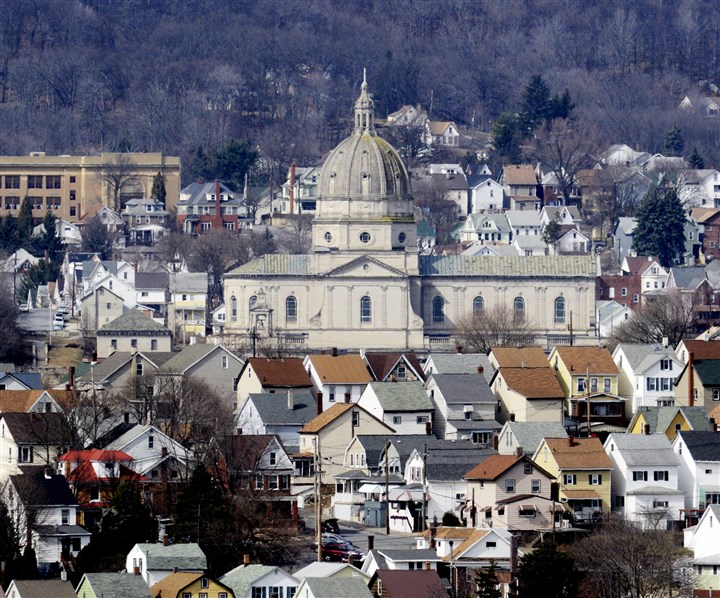Advocates Applaud New Investigation of Abuse by Pennsylvania Priests
By Peter Smith
In compelling Pennsylvania’s Roman Catholic dioceses to turn over as much as 70 years’ worth of records on sexually abusive priests, the state attorney general’s office is mounting what would be the most wide-ranging criminal investigation ever into scandal in the United States. And if history is any guide — in particular, the history of the Diocese of Altoona-Johnstown, which was the subject of the initial two-year grand jury investigation that mushroomed into the statewide probe — here are a few things to expect in the coming months or years: • Few if any people will be prosecuted, either the alleged abusers themselves or those who enabled them, due to the deaths of many potential defendants and the expiration of the statute of limitations that prohibits filing charges after several years. • Many of the cases will be decades old. • Many names of alleged abusers will already be public due to criminal or civil trials, but some new names may emerge. • Internal church documents will show real-time decisions by bishops and other church officials in their own words — some of which may prove shocking and dismaying, others of which may even vindicate bishops’ handling of cases. • Some documentation will be conspicuously absent, evidence of church policies providing for the purging of scandalous documents after a time, although some such documents are retained long after the fact. • The investigations could yield an overall narrative over the years on how Catholic bishops handled case of abuse by priests, whose cases are often reported in isolation. The investigation is being conducted by the attorney general’s office in conjunction with a grand jury based in Pittsburgh. The state has subpoenaed documents dating to 1947 from the dioceses of Pittsburgh, Greensburg, Allentown, Erie, Harrisburg and Scranton, home to more than half of the state’s 3.3 million Catholics. That covers every Roman Catholic diocese in the state besides Altoona-Johnstown, which had its records seized in 2015 during the grand jury probe, and the Archdiocese of Philadelphia, already the subject of grand jury investigations in 2005 and 2011. After releasing the Altoona-Johnstown report on March 1, the attorney general’s office set up a hotline for people to report further cases of abuse, and it says it has received reports of cases from throughout the state. Altoona lawyer Richard Serbin, who has represented victims of abuse in numerous dioceses since a 1987 lawsuit involving the since-defrocked priest Francis Luddy, said he provided investigators with more than 100 names of allegedly abusive priests in all eight of the state’s dioceses. He applauded the investigation, lamenting only that such probes weren’t launched as much as three decades ago. “It’s unfortunate that the attorney general’s office and the district attorneys didn’t act then, because more of these child predators were alive,” he said. “But better late than never.” It comes more than three decades after abuse by priests first came to national attention in Louisiana and 14 years after Boston Globe investigations, dramatized in the 2015 Oscar-winning “Spotlight,” generated an avalanche of revelations and the church’s adoption of zero-tolerance policies. The March 1 report on Altoona-Johnstown alleged more than 50 priests and others associated with the church had sexually molested hundreds of minors, mainly between the 1940s and 1980s. No one was charged, but then-Attorney General Kathleen Kane said the report validated the stories of victims. A related investigation did result in charges against three priests who formerly led a Hollidaysburg-based Franciscan province. They are awaiting trial in Blair County for allegedly endangering the welfare of children by assigning the late Brother Stephen Baker to work in public settings such as Bishop McCort Catholic High School in Johnstown. Baker, accused of molesting scores of minors, committed suicide in 2013. Those who have followed the history of sex-abuse scandals in the Catholic Church say the broad sweep of the Pennsylvania investigation has no precedent in the U.S., although large individual dioceses have undergone probes. The closest parallels may be government commissions in Ireland and other countries citing nationwide cover-ups of abuse in the church. David Clohessy, national director of the Survivors Network of those Abused by Priests, called the Pennsylvania investigations a “long-overdue move that validates the tremendous courage of every single victim witness and whistleblower.” He hopes more such witnesses will contact authorities. He’s “cautiously optimistic but far from complacent,” he said. “We strongly suspect many records have been destroyed.” Under the Catholic code of canon law, “documents of criminal cases in matters of morals” are to be kept in a locked area accessible only to a bishop, and to be destroyed 10 years after the accused dies or completes a sentence. But some documents survive longer than that. The Altoona-Johnstown grand jury report found relevant documents dating at least to the 1960s. The Altoona-Johnstown investigation was triggered when the Cambria County district attorney referred the case to the attorney general. District attorneys can refer cases due to potential conflicts of interest or limited resources. Richard Long, the executive director of the Pennsylvania District Attorneys Association, said the attorney general's office is doing its job. Taking on an investigation so broad in scope, Mr. Long said, could be difficult in smaller counties where funds are tight. “Plus, several dioceses cover multiple counties, so that would be a challenge as well,” he said. Mr. Long said, too, that often in a county, the elected district attorney may have a relationship with the diocese bishop because they are both seen as leaders in the community. A relationship like that could be a conflict in investigating criminal charges.
|
.
Any original material on these pages is copyright © BishopAccountability.org 2004. Reproduce freely with attribution.
